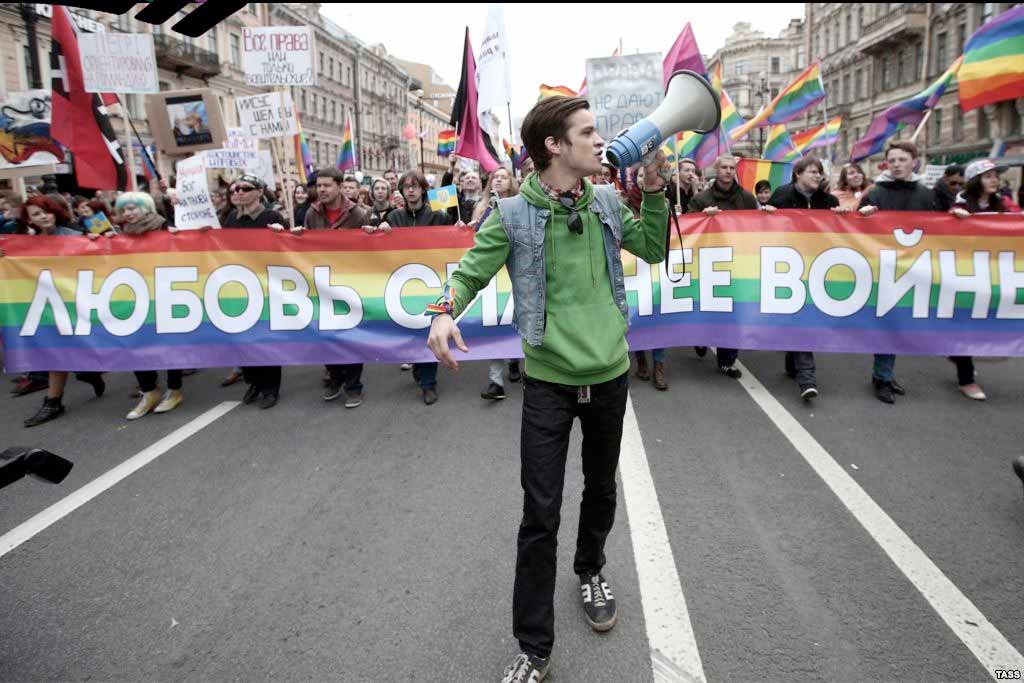>> Russia says drivers must not have ‘sex disorders’
Entrée en vigueur en début de semaine, la loi interdit la conduite automobile à toute personne présentant des «troubles mentaux et troubles du comportement», dont ceux liés à «l’identité de genre et aux préférences sexuelles». La liste mentionnée dans le texte de loi inclut ainsi les travestis et transsexuels au même titre que les fétichistes, les pédophiles, les exhibitionnistes, les voyeurs et les sadomasochistes. La loi, qui dit viser à réduire le nombre de décès causés par les accidents de la route, a suscité les critiques des défenseurs russes de droits de l’Homme.
«Une violation des droits des citoyens russes»
L’Association des avocats russes pour les droits de l’Homme estime que “l’interdiction contredit les normes et les standards internationaux.“ Le commentateur Kolya Bakhtinov indique également sur le site Gay.ru que “si un conducteur est habillé comme une femme et qu’il est enregistré par une caméra de la police, il perdra son permis.” Autant dire que c’est insensé.
«Je ne comprends pas pourquoi les fétichistes, les kleptomanes (aussi concernés par la loi, ndlr) et les transsexuels ne peuvent pas conduire une voiture», a réagi sur son blog Elena Masiouk, membre du Conseil des droits de l’Homme auprès du Kremlin. «C’est une violation des droits des citoyens russes», a-t-elle dénoncé, soulignant «les éventuelles injustices» auxquelles pourrait mener la loi.
>> A new law in Russia aims to deny driver’s licenses to those deemed « mentally ill » — a broad categorization that, according to the law, expressly includes transgender and transsexual people.
Fetishism, exhibitionism, voyeurism, and « pathological » gambling and stealing are also included as « mental disorders » that make citizens ineligible for a driver’s license, reports the BBC. Supporters of the law claim that the new restrictions will make Russia’s roads safer by removing dangerous drivers.
But the law’s detractors are numerous — and global in scope.
« Banning people from driving based on their gender identity or expression is ridiculous and just another example of the Russian regime’s methodical rollback of basic human rights for its citizens,” said Human Rights First’s Shawn Gaylord in a statement Thursday.
Even within Russia there is vocal dissent, including from the Association of Russian Lawyers for Human Rights, which called the new law « discriminatory, » according to the BBC. Similarly, the Russian Psychiatric Association expressed concern that the new restrictions would discourage people from seeking psychiatric help, afraid a diagnosis could result in revocation of their driving privileges — a concern Human Rights First also echoed.
« Beyond the denial of basic freedoms, this provision may deter transgender people from seeking mental health services for fear of receiving a diagnosis that would strip them of their right to drive, and leaves the door open for increased harassment, persecution, and discrimination of transgender people by Russian authorities, » Gaylord said. « We urge the United States to immediately condemn this provision and to press the Russian government to repeal this decision. »
While relations between the U.S. and Russia have remained icy in the wake of Putin’s annexation of Crimea and what appears to be a Russian-backed insurgency throughout Ukraine, President Obama has repeatedly referenced the Kremlin’s human rights violations against LGBT Russians. After canceling a scheduled meeting with Putin in August 2013, Obama said he had « no patience for countries that try to treat gays or lesbians or transgender persons in ways that intimidate them or are harmful to them. » And in a move widely interpreted to be a denunciation of the country’s anti-LGBT laws, both President Obama and Vice President Joe Biden refused to attend the 2014 Winter Olympics, held in Sochi, Russia, last February.
« Restricting transgender people from obtaining drivers licenses is simply another example of the Russian government’s increased campaign of persecution and discrimination against its LGBT population, » said Jean Freedberg, the deputy director of Human Rights Campaign Global, in a statement Thursday.
Indeed, recent news about Russia’s escalting campaign against LGBT people has been one of several dark blemishes on the country’s global reputation. Russia’s nationwide ban on so-called homosexual propaganda, which makes it illegal for individuals, groups, or media outlets to express positive messages about LGBT people or identities, has been condemned by nearly every human rights group on the planet.
Advocate avec l’AFP

















